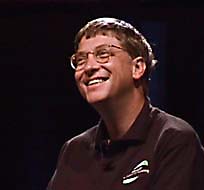How to Get Yahoo's Next-Generation Webmail

Spectacular" isn't too gushing a description of the new version of Yahoo Mail--with its drag-and-drop interface, it's one of the most highly-evolved, desktop-like browser based services yet.
But there's one teensy problem with it: Unless you're one of the users who Yahoo invites to try it out, you can't get it, since it remains a closed beta. At least that's what I thought. But the Google Operating System blog has published a clever trick for upgrading from the old Yahoo Mail to the beta--and when I tried it, it worked. Here's the process in a nutshell, assuming you already have a Yahoo Mail account and are logged in:
1. Click on Options on the right-hand side of the screen.
2. Click on Account Information on the left-hand side.
3. If you're prompted for your password again, give it.
4. Click the Edit link next to Member Information.
5. Scroll down to "Preferred Content" and click on your current choice (which, if you're reading this, is most likely English). On the next page, change it to Yahoo United Kingdom, Yahoo France, or Yahoo Germany. Click Finished, then click Finished again.
6. On the next screen, you should have an invitation to try the beta--click on it, and you're good to go. And you can go back and change your Preferred Content back to whatever it was in the first place.
If you try out the beta--which is also a basic-but-handy RSS reader that knows about any feeds you've set up in My Yahoo--come back and let us know what you think. If you're not a fan, you can revert back to Yahoo Mail classic...but I'm not sure why anyone would. (The beta can be a tad slow--which might be one reason why it's still a beta--but I've never found its performance to be completly unbearable.)
source:pcworld











